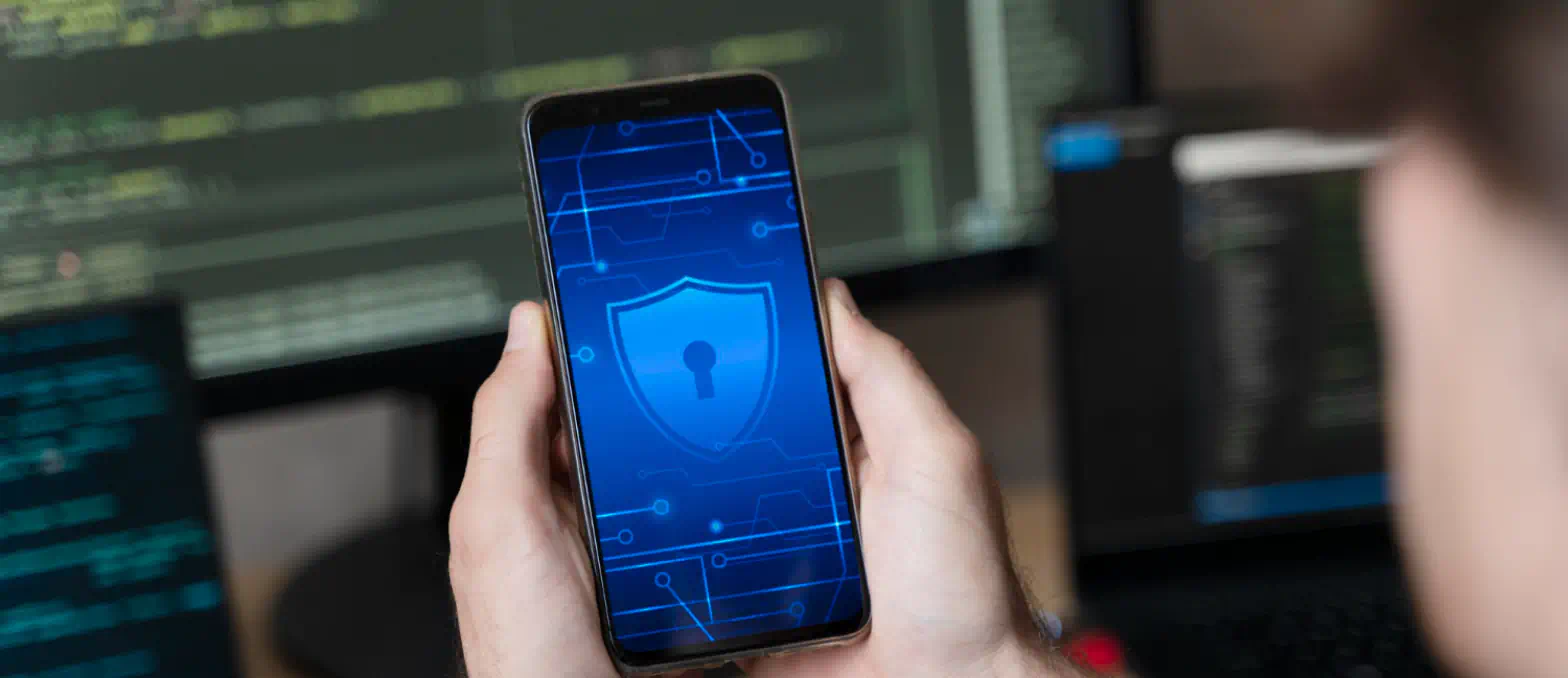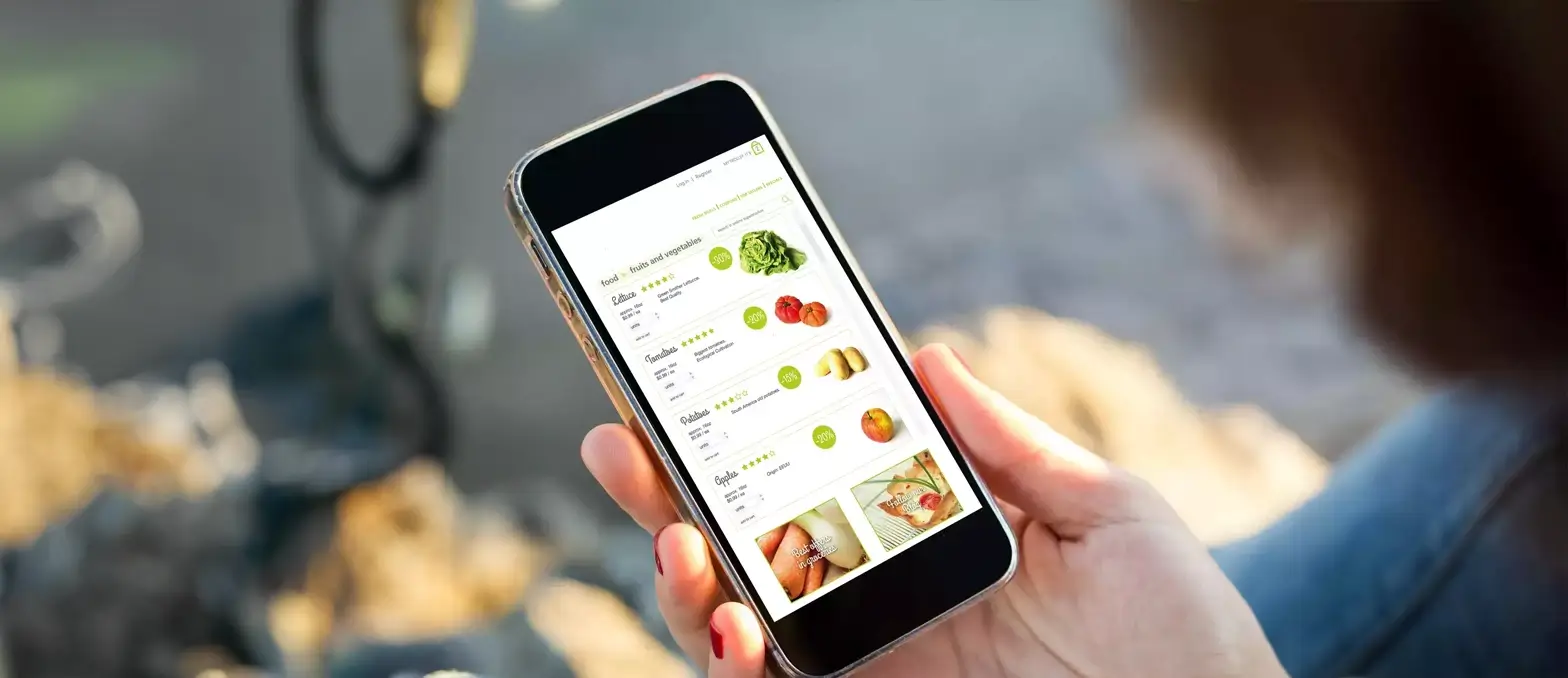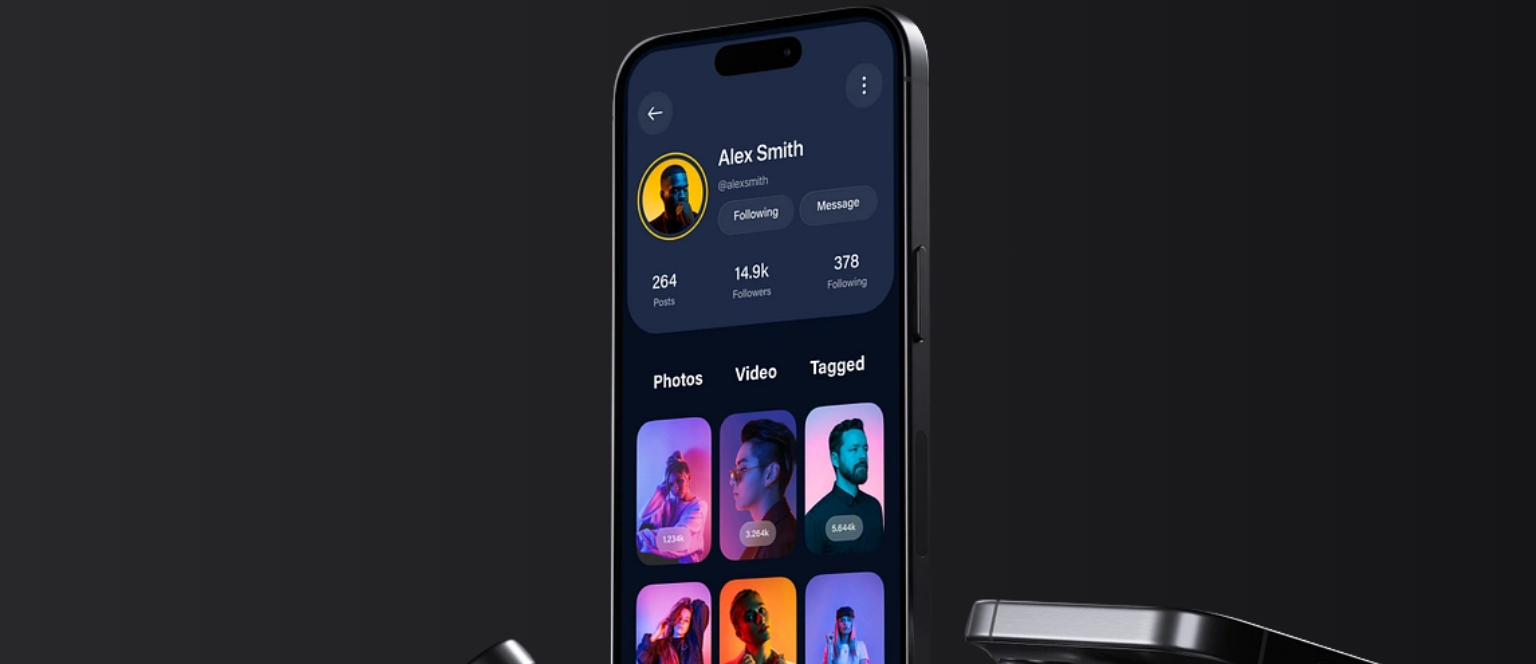Table of Contents
In the rapidly evolving world of technology, its impact on various aspects of life is undeniable. Particularly apps for elderly care, technology has emerged as a crucial ally. The aging population, often facing unique challenges, finds a supportive companion in technology, especially through apps designed specifically for their needs.
Technology’s role in elderly care is becoming increasingly vital. The demand for effective and compassionate care solutions grows as the world’s population ages. The World Health Organization estimates that by 2050, the global population of people aged 60 and older will reach 2 billion, up from 900 million in 2015. This shift highlights the need for innovative approaches to support the elderly.
The market for elderly care apps is expected to grow at a 10% compound annual growth rate. Between 2021 and 2031, this market is predicted to see significant growth. This is largely due to the increase in smartphone-based medical care apps. These apps are key in meeting the needs of the elderly, offering a range of functions from health monitoring to easier communication with family. They improve the lives of the elderly and provide reassurance to their caregivers and families.
Research by the Pew Research Centre in 2021, using data from over 3.5 billion smartphone users, found that 61% of seniors aged 65 and above own a smartphone. This high usage explains the success of health solutions in this demographic. Elderly care apps are also critical in promoting independence among seniors. They aid in managing daily activities, setting medication reminders, and offering emergency support, helping the elderly maintain a self-reliant and dignified lifestyle.
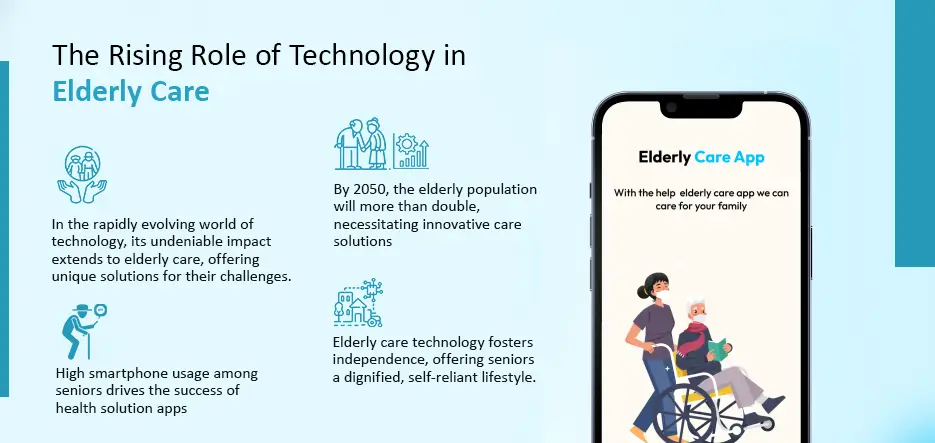
Overview of Apps for Elderly Care
When discussing apps for elderly care, it’s crucial to understand their wide array of functionalities. These apps are designed with the unique needs of seniors in mind, ensuring ease of use and accessibility. Elderly care apps can be broadly categorized into several types:
- Health Monitoring Apps: These apps track vital signs, medication schedules, and doctor appointment booking. Features such as monitoring heart rate and tracking blood pressure are commonly included. This makes it simpler for older individuals to take an active role in maintaining their health.
- Communication and Social Apps: For the mental well-being of older adults, staying in touch with relatives and friends is crucial. Applications enabling video calls, text messaging, and even social networking play a key role. They can help lessen the sense of being isolated and lonely. This issue of loneliness, as highlighted in a study by the American Psychological Association, impacts a notable number of the elderly.
- Emergency and Safety Apps: Safety is a prime concern regarding elderly care. Apps equipped with features like fall detection, emergency call buttons, and GPS tracking can provide seniors and their families with an added layer of security.
- Memory and Cognitive Apps: These apps boost cognitive functions through games and activities. They’re especially useful for seniors dealing with memory-related challenges.
Healthcare app development for elderly care is not just a convenience but a necessity in the modern world. They represent a bridge between technology and compassionate care, offering practical and empathetic solutions. As technology advances, the potential for these apps to enhance the lives of the elderly is boundless.
Understanding the Needs of the Elderly
Physical and Cognitive Changes in Aging
Aging brings physical and cognitive changes, which are crucial when creating elderly care apps.
- Physical Changes: Aging often reduces physical strength and mobility, and increases chronic conditions risks like arthritis. The CDC notes that over 49.6% of those aged 65+ suffer from arthritis. Elderly care apps can help by tracking exercise and managing pain, supporting seniors in maintaining physical health.
- Cognitive Changes: Aging can affect memory, attention, and problem-solving abilities. The Alzheimer’s Association states that around 5.8 million Americans aged 65+ had Alzheimer’s dementia in 2020. Elderly care apps, with memory games and cognitive exercises, aid seniors in keeping their minds sharp.
Key Concerns and Needs of the Elderly
Knowing the main concerns and needs of the elderly is key to developing helpful and empathetic care apps.
- Health and Medical Care: Seniors often need more medical care. Apps providing medication reminders, scheduling, and telehealth can greatly improve their health management.
- Safety and Emergency Services: For many elderly, especially those living alone, safety is crucial. Apps with fall detection, emergency calls, and location tracking reassure seniors and their families.
- Social Connection and Mental Health: Loneliness is a significant issue for the elderly. Apps enhancing communication and social interaction can reduce these feelings.
- Independence and Daily Living: Many seniors strive to stay independent. Apps that help with daily tasks, offer cognitive support, and provide educational content can empower seniors to live more confidently.
In summary, elderly care apps should cater to the specific changes and challenges of aging. Focusing on health, safety, social connection, and independence, these apps can greatly enhance seniors’ lives. As the population ages, the importance of technology in elderly care grows, underlining the need for well-designed, compassionate elderly care apps.
Conceptualizing the App
Identifying Core Features for Elderly Users
When developing apps for elderly care, meeting seniors’ unique needs is crucial. Most seniors are online, but often find new tech hard to use. Senior care apps need to be both useful and easy to navigate.
- Health Monitoring: Essential for senior care apps features like medication reminders, heart rate tracking, and scheduling doctor visits must be simple for effective health management.
- Safety Features: As the CDC notes, falls are common among the elderly. Thus, fall detection and emergency call functions are vital. They provide quick assistance and can save lives.
- Social Engagement: Many seniors feel lonely. Adding easy-to-use messaging and video call options helps them stay connected with family and friends.
- Cognitive Stimulation: Mental activity is important. Apps should offer brain games and memory tasks to keep seniors mentally sharp.
Balancing Simplicity and Functionality
For elderly care apps, it’s important to make them straightforward yet fully functional.
- Intuitive Design: The app should have a clear, simple layout. Big buttons, bright colors, and easy menus are more senior-friendly.
- Customization Options: Features like adjustable font size or choosing specific functions make the app more personal and suited to individual needs.
- Regular Updates and Support: Keeping the app updated and providing easy-to-reach support ensures it stays useful and easy for seniors.
In summary, creating an app for elderly care means focusing on key features that serve seniors’ needs in a user-friendly way. Achieving a balance between simplicity and functionality can greatly improve seniors’ independence, safety, and social life. Success in these apps comes from understanding and addressing the particular challenges faced by the elderly.
Designing for Accessibility
Interface and Navigation Best Practices
In the realm of apps for elderly care, the interface and navigation design play a critical role in their usability. The goal is to create an app that is functional and easy for seniors, who may have varying levels of tech-savviness.
- Simplicity is Key: The interface should be clean and clear. Using large, easily readable fonts and clear labels for buttons and menus can significantly enhance usability. A study by the Nielsen Norman Group emphasizes the importance of readability and navigation ease for older users.
- Consistent Layout: Consistency in the layout helps in building user intuition. Users who know where to find certain features feel more confident navigating the app.
- Touch-Friendly Design: Considering fine motor skills may decline with age, designing touch-friendly interfaces with larger, easy-to-tap buttons is essential. Also, this approach reduces the chance of errors and enhances the overall user experience.
- High Contrast and Color Use: High contrast between text and background improves readability. Moreover, using distinct colors to denote different functions can aid users in distinguishing various elements of the app.
Incorporating Assistive Technologies
Assistive technologies are vital in making apps more accessible to elderly users, especially those with disabilities.
- Voice Commands and Dictation: Integrating voice command technology can be a boon for users who find typing or navigating through touch difficult. Voice-enabled features allow users to interact with the app effortlessly.
- Screen Readers and Magnifiers: Screen readers and magnifiers are indispensable for users with visual impairments. These technologies read out the text on the screen and magnify content, making it easier for users with vision challenges.
- Customizable Interfaces: Allowing users to customize their experience, such as adjusting font size or contrast settings, makes the app adaptable to individual needs and preferences.
- Haptic Feedback: Haptic or tactile feedback can be particularly useful for users with visual impairments. This technology provides physical sensations as a response to touch, helping users navigate the app.
To wrap up, the creation of apps for elderly care, especially caregiver apps and caregivers mobile apps, demands meticulous focus on interface design and the inclusion of assistive technologies. These factors are essential to make the app accessible to a broader audience and to guarantee a user-friendly and positive experience. By designing with care, these applications become indispensable in supporting the elderly and their caregivers. They promote independence and improve life quality.
Ensuring Security and Privacy
Data Protection in Elderly Care Apps
In today’s world, protecting data is crucial, especially in elderly care apps. These apps handle sensitive personal and health information, so their security is key.
- Robust Encryption: Encrypting all data, including personal details, health records, and in-app communication, prevents unauthorized access.
- Secure User Authentication: Strong authentication methods, like two-factor authentication, are vital. They protect elderly users, who may be more at risk of online fraud.
- Regular Security Audits: Frequent and thorough audits by cybersecurity experts help find and fix vulnerabilities.
- Privacy by Design: Building the app with privacy as a core component is essential. This means integrating privacy features right from the start.
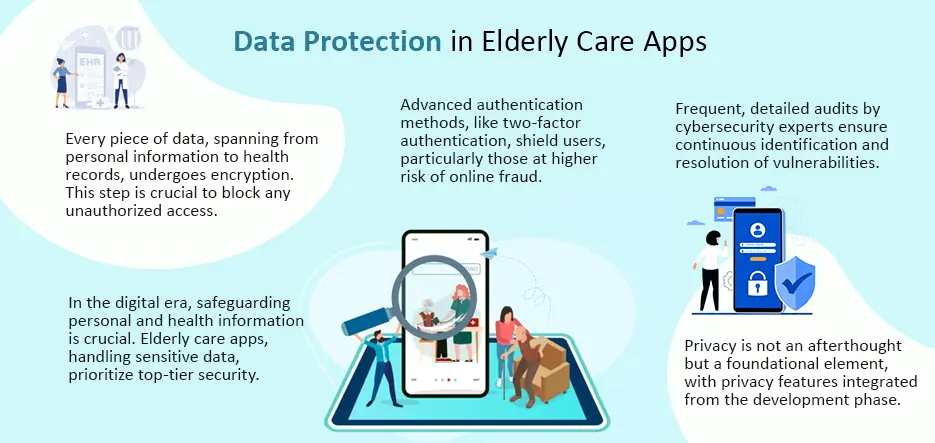
Complying with Legal Standards
- Adhering to Healthcare Regulations: Apps must follow healthcare laws. For example, in the U.S., apps with medical data must comply with HIPAA for health information security.
- International Data Protection Laws: Considering global app distribution, following international laws like GDPR in the European Union is important. These laws set standards for handling personal data.
- User Consent and Transparency: Apps should clearly explain their data use and get explicit user consent. This is not just legally required but also builds trust.
- Regular Legal Compliance Updates: As digital healthcare laws change, apps must be updated regularly to stay compliant.
Ensuring security and privacy in apps for elderly care, including the best apps for caregivers and caregiver scheduling apps, involves strong data protection and legal compliance. By focusing on these areas, developers can create secure and trustworthy apps that protect elderly users’ sensitive information and meet healthcare regulations.
Social and Communication Tools
Facilitating Connectivity with Family
In our digital age, apps for elderly care are vital for connecting seniors with their families. For many, this isn’t just about emotional health; it’s practical, too.
- Ease of Use: A top priority for any custom mobile application development company is an easy-to-use interface for the elderly. Large icons, voice commands, and simple menus are essential. Also, this makes sure seniors with limited tech experience can easily connect with family.
- Video Calling and Messaging: Key features like video calls and instant messaging are crucial. They offer a personal touch for families, going beyond traditional phone calls. The American Association of Retired Persons (AARP) notes over 50% of seniors now use smartphones for video calls.
- Shared Calendars and Event Reminders: Including shared calendars and reminders in apps helps families keep track of important events like doctor’s appointments or family gatherings.
- Privacy and Security: For iOS app development companies, adhering to Apple’s strict security guidelines is key. This ensures safe communication for seniors and their families.
Community Building within the App
Elderly care apps also help build a user community.
- Forums and Social Groups: Integrating forums and social groups lets seniors connect with peers. This fights loneliness and fosters belonging.
- Activity and Event Notifications: Notifying users about local events or activities encourages socializing, which is great for those new to an area or looking to make friends.
- Feedback and Developer Interaction: Regular user feedback and developer interaction create a user-focused app. This approach improves the app and makes users feel important.
- Collaborations with Local Communities: Partnering with local groups offers users more resources and social opportunities.
Social and communication tools in apps for elderly care are key to enhancing seniors’ lives. Also, they strengthen family ties and build community. For mobile application consulting services, especially in iOS app development, focusing on these aspects can lead to impactful, socially beneficial apps for the elderly.
Testing and Feedback
Conducting User Testing with Elderly Individuals
User testing is crucial for apps for elderly care. It involves real users trying the app to find issues and suggest improvements. For Hire Mobile App Development Firm, especially for the elderly, this step is key.
- Understanding User Needs: Know the elderly’s needs and limitations, like visual or hearing challenges, limited tech skills, and mobility issues.
- Diverse Testing Group: Include a broad range of elderly people in tests to get varied feedback. This should cover different tech skills, physical abilities, and cognitive levels.
- Simplifying Testing: Make the testing process easy. Clear instructions and support help participants give better feedback.
- Gathering Data: Collect qualitative and quantitative data for a full view of the app’s real-world performance. Use surveys, interviews, and usage stats.
Iterative Development Based on Feedback
The feedback gathered during user testing is invaluable for iterative development, a process where the app is continuously improved based on user input. Top mobile app development companies in USA often employ this approach to refine their apps.
- Regular Updates: Update the app regularly based on user feedback. This fixes problems and adds needed features.
- User-Centric Design: Let feedback guide the app’s design and functionality. This keeps the app relevant and useful.
- Engagement Post-Launch: Keep collecting feedback after launch. Monitor reviews, do follow-up surveys, and connect with users.
- Measuring Success: Assess the app’s impact on users. Look at engagement, satisfaction, and how it improves elderly users’ lives.
Thorough user testing with the elderly and iterative development based on feedback is vital for effective, user-friendly elderly care apps. Custom mobile app development services and mobile app development agencies know this process’s value in making apps that meet the elderly’s needs and enhance their life quality.
Marketing and Distribution
Targeting the Right Audience
Understanding the target audience is key to marketing apps for elderly care. This includes not only the elderly but also their caregivers and family members.
- Understanding the Elderly Demographic: An On Demand App Development Company needs to know the elderly’s needs, preferences, and challenges. This covers their comfort with technology, health issues, and daily routines.
- Reaching Caregivers and Family Members: Caregivers or family members often download apps for the elderly. Marketing to them focuses on the app’s reliability, security, and ease of use.
- Segmentation and Personalization: Segment the audience by age, location, health, and tech skills. Tailor marketing messages for better engagement.
Effective Marketing Strategies for Elderly Care Apps
Once the target audience is identified, implementing effective marketing strategies is key to the success of elderly care apps, whether developed by a custom mobile app development company or an Android app development agency.
- Utilizing Digital Platforms: Online marketing is effective for all age groups. This includes social media ads, email marketing, and content marketing.
- Educational Content: Offer educational content on elderly care. Use blog posts, videos, and infographics to attract and engage the audience.
- Partnerships and Collaborations: Work with healthcare providers, senior communities, and organizations to extend the app’s reach. These partnerships boost credibility.
- User Reviews and Testimonials: Positive user feedback is a powerful marketing tool. It provides social proof and influences potential users.
- Search Engine Optimization (SEO): Optimize the app’s website and content for search engines. Integrate keywords like “apps for elderly care” strategically.
- Mobile App Store Optimization (ASO): ASO is vital for Android app development agencies. Optimize the app’s store listing with engaging descriptions, relevant keywords, and visuals.
- Offline Marketing Efforts: Use brochures, flyers, and community events to reach audiences less active online.
Ensuring User Engagement and Retention
Strategies for Continuous User Engagement
Keeping users engaged in elderly care apps is as vital as attracting them. Ongoing engagement means users stay active and get long-term value from the app.
- Personalized Experience: Tailoring the app to each user’s likes, health needs, and how they use the app is crucial. This approach makes the app more relevant and engaging.
- Interactive Content: Features like quizzes, health challenges, and games keep users interested. They’re fun and also good for mental activity.
- Social Features: Adding community forums, chat options, and connections with family and friends in the app boosts engagement. Social connections help reduce loneliness in the elderly.
- Feedback and Participation: User input on app improvements promotes a sense of belonging. Surveys, feedback forms, and forums where users share ideas are great for this.
- Regular Communication: Notifications or newsletters about new features and tips keep users connected to the app.
Updates and Feature Enhancements for Retention
For long-term user retention, elderly care apps need regular updates and new features.
- Staying Current with Technology: Updating the app with the latest tech keeps it efficient and secure.
- Adding New Features: New features, like the latest AI health tools, based on user feedback and tech trends, keep the app interesting.
- Improving Usability: Enhancing the app’s design and user experience based on user feedback and behavior analytics is important. Making the app easy to navigate and visually appealing is key.
- Bug Fixes and Performance Improvements: Fixing bugs and boosting app speed are crucial for a good user experience.
- Security Updates: Regularly updating security, especially for sensitive elderly health data, is essential.
Book 30 Minutes Free Consultations with A3logics Experts to Start Your App Journey Today!
Conclusion
Elderly care technology is evolving rapidly, with AI and machine learning solutions shaping personalized care and health monitoring. VR and AR are emerging as tools for cognitive and physical therapy.
Collaboration is increasing between healthcare providers, hire mobile app developers, and caregiver tracking apps. This leads to better care solutions. Telehealth is gaining importance, making elderly care apps vital for easy health management.
This field’s growth offers significant chances to enhance elderly lives through technology. Each new enterprise mobile application development step brings us nearer to more compassionate, accessible, and efficient elderly care.
A3Logics is at the forefront of this transformation. Whether you’re involved in caregiving or healthcare app development services, your contribution is vital. Embrace the opportunities, engage with the technology, and help shape a future where elderly care equates to dignity, independence, and quality of life. Advancements here benefit not just the elderly but society as a whole.
FAQs
What are the best practices for designing user interfaces for the elderly?
When creating user interfaces for the elderly, prioritize simplicity and accessibility. Choose large, easy-to-read fonts and high-contrast colors for better visibility. Make buttons and interactive parts big enough for those with limited hand movement. Arrange the layout in a clear, consistent way for easy navigation. Also, add voice commands and audio feedback to help users with visual challenges or difficulty using touchscreens.
How can elderly care apps help in emergencies?
Elderly care apps can quickly help in emergencies. Features like fall detection, location sharing, and emergency call buttons offer fast aid. These apps can alert family or caregivers about unusual activities or health issues, leading to quick responses and possibly preventing serious health problems.
What legal considerations should be kept in mind when developing elderly care apps?
When making elderly care apps, follow healthcare laws like HIPAA for data privacy. Ensure the app meets the laws of the countries where it will be used. This includes securing user data, getting permission for data use, and telling users about data practices. Regularly update the app to stay in line with changing laws.
How do we market apps for elderly care effectively?
To market apps for elderly care well, know and meet your target audience’s needs. Use digital marketing like SEO, content marketing, and social media ads. Work with healthcare app development companies and senior communities for support and trust. Show user stories and case studies to build confidence. Also, try offline marketing, like community events or partnerships with senior clubs.
What are the challenges in maintaining and updating elderly care apps?
Keeping and updating elderly care apps involves staying current with technology and user needs. Make sure the app works with new mobile devices and operating systems. Update the app regularly for safety, better performance, and new features while keeping the interface simple and easy. Also, use user feedback to continually improve the app.


